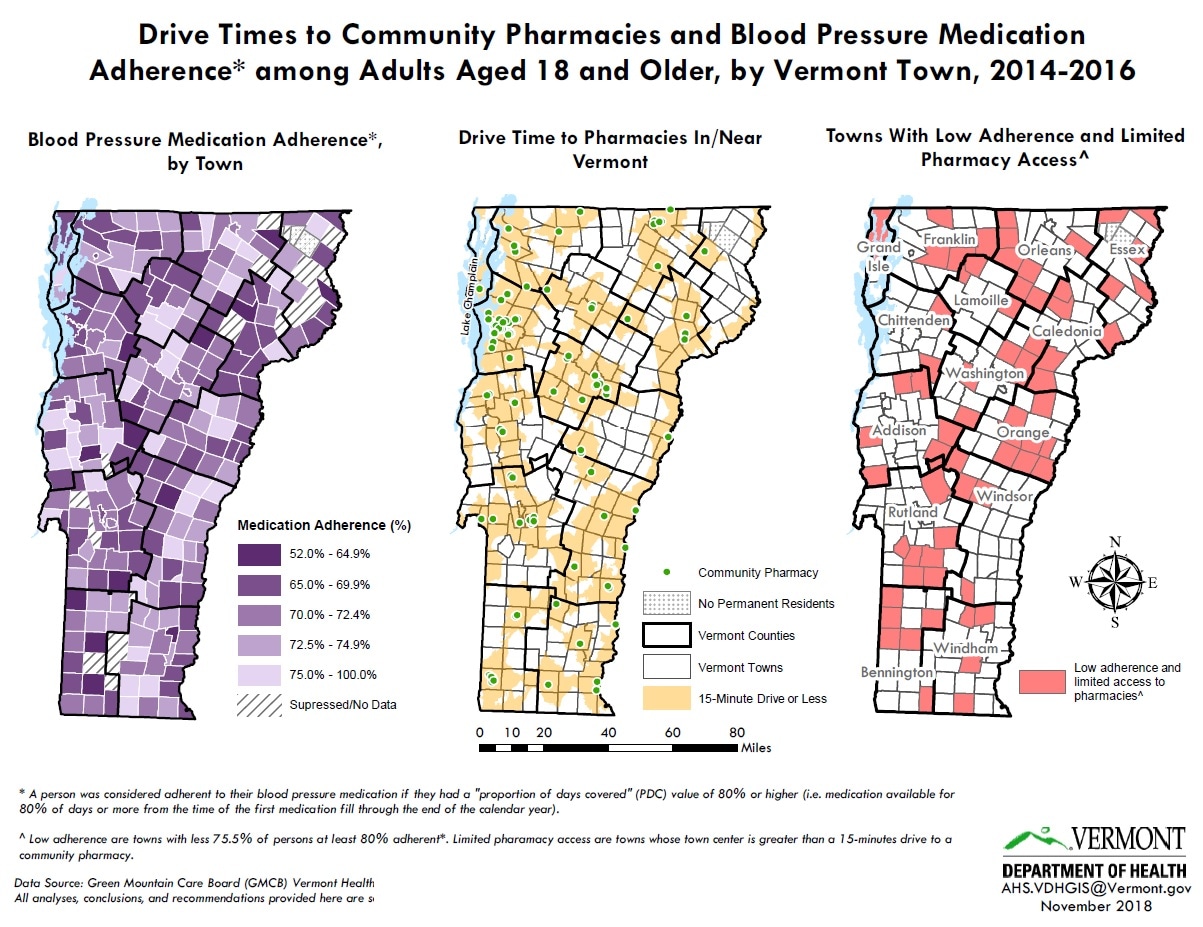Key points
Map

Data sources
Over a quarter of Vermont towns (27%) had less than 75% of the adult population with a history of hypertension in the last two years that were at least 80% adherent to their blood pressure medication regimens.
ArcMap 10.5.1 ESRI
Vermont Healthcare Uniform Reporting and Evaluation System (VHCURES) internal list of community pharmacies in Vermont and in the U.S. states within 20 miles of the Vermont border.
Proportion of insured population with history of hypertension (in last 2-years) extracted from VHCURES for all Vermonters aged 18 and older for all payers (commercial, Medicaid, Medicare) who were insured for the full calendar year being analyzed. The proportion of town populations at least 80% adherent to their blood pressure medication regimens were stratified by quintiles. Towns with fewer than 11 residents with claims for blood pressure medication were suppressed. A network analysis was performed to establish a 15-minute drive time service area toward community pharmacies. Community pharmacies in New York, New Hampshire, and Massachusetts were included in the service area calculation if they were within 20 miles of the Vermont state border; only community pharmacies within Vermont were displayed. Towns with low adherence and limited access (defined as towns with <75% of adults at least 80% adherent to their blood pressure medication regimens) to pharmacies were identified by performing a “selection by location” for towns with <75% of adults adherent that intersected the 15-minute drive time service area. This selection was then switched to select towns with low blood pressure medication adherence that were outside the 15-minute service area thus displaying towns with low adherence that were >15-minute drive from a community pharmacy. A new map layer was created from this selection to display the results.
Program staff will utilize this map to provide situational awareness of Vermont towns that have lower levels of blood pressure medication adherence and less access to community pharmacies. Additionally, it will aid in identifying partners and strategies to help reduce proximity as a barrier to Vermonters adhering to their blood pressure medication.
Paul Meddaugh, Public Health Analyst, Vermont Department of Health
802-951-0133
Paul Meddaugh, Vermont Department of Health; Accessed from the Centers for Disease Control and Prevention’s Chronic Disease GIS Exchange, https://www.cdc.gov/dhdsp/maps/gisx/mapgallery/VT-pharmacies.html Accessed from the Centers for Disease Control and Prevention's Chronic Disease Map Gallery.
